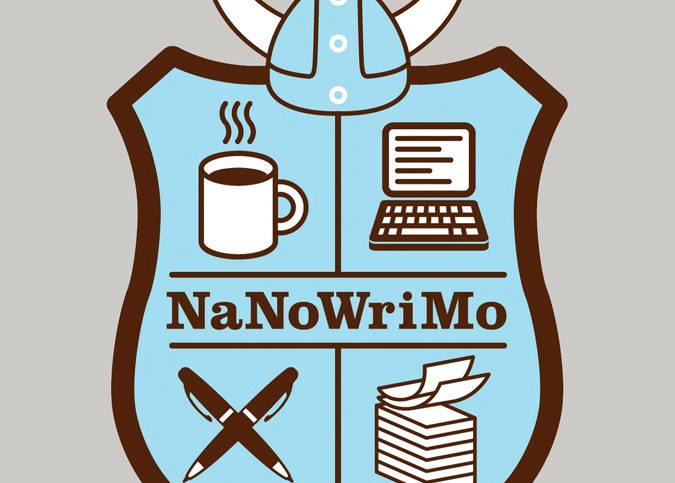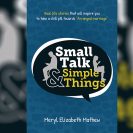Here in the bazaar office we are obsessed with all things grammar and writing. We share notes on the latest novels we are reading, and critique each other’s articles before they go out. The joy we find in weaving together sentences that paint a picture in your mind, is indescribable. So, when one of the bazaarites suggested we get together and take on the extreme writing challenge, NaNoWriMo, we jumped at the opportunity.
The competition started in 1999 in San Francisco when Chris Baty and 20 of his friends decided to challenge themselves to write a novel each in one month. In the growing city of Internet sensations and young millionaires, the freelance writer wanted to seize the moment of innovation exploding around him. For him and the first NaNoWriMo participants, the obsession was literary.
“In short, we adored novels and glorified writers, and thought that if, after a month’s labors, we could drain even the thinnest alliance with that world, something mysterious and transformational would happen to us,” wrote Baty in the introduction to his book No Plot No Problem.
The group met in coffee shops for writing marathons, pushed each other over writer’s block, and fueled themselves with caffeine. In the end, only half labored over the keyboard until the very end. The result? Six pretty bad novels, and a revelation.
“Writing requires editing, but getting the story out is the first, most important part,” said Baty. “The biggest thing separating people from their artistic ambitions is not lack of talent, it’s lack of deadline.”
Today, the competition attracts more than a quarter million participants and produces more than 35,000 winners. To win NaNoWriMo you must upload at least 50,000 words of an original nonfiction piece written during that month. That’s 1,666 words a day.
The competition has produced some great pieces, including Like Water For Elephants, a New York Times bestseller readapted for a feature film starring Reese Witherspoon. It has also produced some surprising authors including self-published 14-year-old high school student Hannah Powers with her novel Night and Day. Numerous books, blogs and how-to manuals have been produced to give participants that extra push to get to the finish line. Yet, not all the critique has been positive.
“Why does giving yourself permission to write a lot of crap so often seem to segue into the insistence that other people read it?” said Laura Miller in her Salon article ‘Better yet, DON’T write that novel’. “Nothing about NaNoWriMo suggests that it’s likely to produce more novels I’d want to read…Even if every one of these 30-day novelists prudently slipped his or her manuscript into a drawer, all the time, energy and resources that go into the enterprise strike me as misplaced.”
Miller’s post sparked much debate on the value of participating and completing the competition. She claims that publishers enter the month of November with dread, knowing that in 30 days they will have to start dealing with a flurry of first draft entries from winners dying to see the bound copy of their manuscripts. She suggests to the world to stop encouraging writers “who, let’s face it, will keep on pounding the keyboards whether we support them or not,” and start promoting readers. She claims there are already way too many novels out there.
Yet, we at the bazaar office feel that the magic of NaNoWriMo may be lost on Miller, not a novelist. The world does need to do more to encourage reading; that cannot be denied. Neither can the fact that a 50,000 word first draft of a story will not a ‘great novel’ make. Our purpose is to bring to life the worlds we have imagined.
We are writing because we love to write, but we know we don’t make enough time for it. This is an organized way to make sure we get the words out, just to see where the story takes us. Through a Skype conversation, WhatsApp group and shared Evernote notebooks, we’ll be editing each others work and exchanging ideas. Our goal is not to create finished manuscripts we can immediately send out to publishers, that is unrealistic and takes away from everything about NaNoWriMo. We just want to breathe a little life in our stories, and watch words bring new characters to life, even if they are all on life support by the end of it. Instead we’ll take James Patterson’s advice:
“You’re not crazy, I promise. I know because I’ve written a novel in a couple of months,” he wrote in the nanowrimo.org article ‘Pep talk from James Patterson’. “Yes, I’m a human being (just ask my editor, or my wife) and I do sleep. The book even got published. So anyone who tells you it’s impossible is wrong and you should probably stop taking their advice.“
Editor’s note: If you are keen to join the bazaar team on their NaNoWriMo journey, please contact us on info@bazaar-magazine.com.
Update: The bazaar Nanowrimo team has made it to the end of the month and we are happy to announce that one of our team did get to the finish line with 50,021 words. Congratulations!
Sign up for NaNoWriMo at nanowrimo.org. Follow them on Twitter, Facebook and Instagram @nanowrimo.











